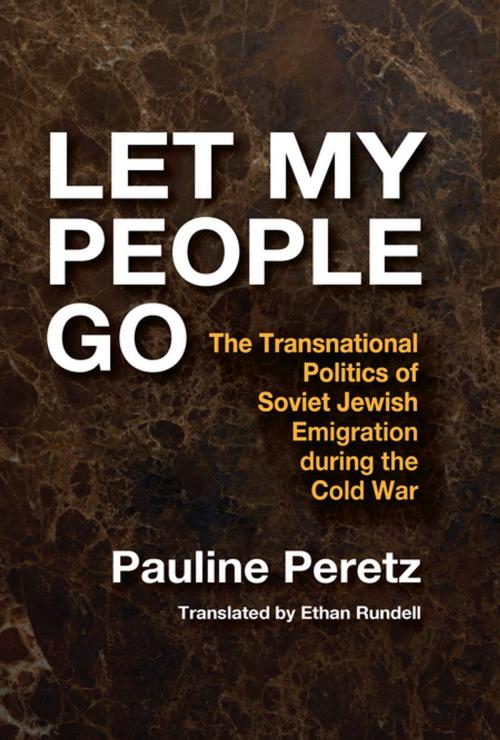Let My People Go
The Transnational Politics of Soviet Jewish Emigration During the Cold War
Nonfiction, Social & Cultural Studies, Social Science| Author: | Pauline Peretz | ISBN: | 9781351508896 |
| Publisher: | Taylor and Francis | Publication: | July 5, 2017 |
| Imprint: | Routledge | Language: | English |
| Author: | Pauline Peretz |
| ISBN: | 9781351508896 |
| Publisher: | Taylor and Francis |
| Publication: | July 5, 2017 |
| Imprint: | Routledge |
| Language: | English |
American Jews' mobilization on behalf of Soviet Jews is typically portrayed as compensation for the community's inability to assist European Jews during World War II. Yet, as Pauline Peretz shows, the role Israel played in setting the agenda for a segment of the American Jewish community was central. Her careful examination of relations between the Jewish state and the Jewish diaspora offers insight into Israel's influence over the American Jewish community and how this influence can be conceptualized.To explain how Jewish emigration moved from a solely Jewish issue to a humanitarian question that required the intervention of the US government during the Cold War, Peretz traces the activities of Israel in securing the immigration of Soviet Jews and promoting awareness in Western countries.Peretz uses mobilization studies to explain a succession of objectives on the part of Israel and the stages in which it mobilized American Jews. Peretz attempts to reintroduce Israel as the missing, yet absolutely decisive actor in the history of the American movement to help Soviet Jews emigrate in difficult circumstances.
American Jews' mobilization on behalf of Soviet Jews is typically portrayed as compensation for the community's inability to assist European Jews during World War II. Yet, as Pauline Peretz shows, the role Israel played in setting the agenda for a segment of the American Jewish community was central. Her careful examination of relations between the Jewish state and the Jewish diaspora offers insight into Israel's influence over the American Jewish community and how this influence can be conceptualized.To explain how Jewish emigration moved from a solely Jewish issue to a humanitarian question that required the intervention of the US government during the Cold War, Peretz traces the activities of Israel in securing the immigration of Soviet Jews and promoting awareness in Western countries.Peretz uses mobilization studies to explain a succession of objectives on the part of Israel and the stages in which it mobilized American Jews. Peretz attempts to reintroduce Israel as the missing, yet absolutely decisive actor in the history of the American movement to help Soviet Jews emigrate in difficult circumstances.















